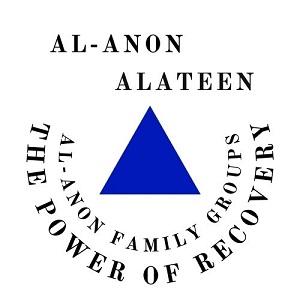24 Hour Helpline 510-839-8900 English 510-502-8560 Espanol Helplines are staffed 24/7 by A.A. member volunteers who have solved their drinking problem.
24 Hour Helpline 510-839-8900 English 510-502-8560 Espanol Helplines are staffed 24/7 by A.A. member volunteers who have solved their drinking problem.
“Coming together is a beginning,
staying together is progress,
and working together is success.”

Stock photo. Membership in AA unknown
AA committee members are trained to speak to and inform healthcare professionals about Alcoholics Anonymous and alcoholism. Working with the professional community to better help the still-suffering alcoholic.
AA is nonprofessional, apolitical, multiracial, and available almost everywhere. There are no age or education requirements. Membership is open to anyone who wants to do something about their drinking problem.
Alcoholism is an illness that affects people of all ages, socioeconomic backgrounds, genders, abilities, orientations, nationalities, cultures, ethnicities and beliefs. Loss of control for the alcoholic is not measured by how long one drinks or how much one drinks.
The AA organization is self-supporting through the members voluntary contributions. AA is supported and operated by the service and financial contributions of its members in each region or country.
There are over 600 AA meetings a week in western Alameda and Contra Costa counties. Open AA meetings welcome anyone interested in the AA Program of Recovery.
“Not too long ago, alcoholism was viewed as a moral problem. Today, many regard it primarily as a health problem. To each problem drinker, it will always remain an intensely personal matter. Alcoholics who approach AA frequently ask questions that apply to their own experience, their own fears, and their own hopes for a better way of life.
There are many different ideas about alcoholism.
The explanation that seems to make sense to most AA members is that alcoholism is an illness, a progressive illness, which can never be cured but which, like some other diseases, can be arrested.
Members AA feel that the illness represents the combination of a physical sensitivity to alcohol and a mental obsession with drinking, which, regardless of consequences, cannot be broken by willpower alone.” – Copyright A.A. World Services, Inc. Frequently asked questions about AA
Professionals, those that work with the recovery community, commonly refer to AA as a Peer Mentoring organization, Twelve Step Support Group, a Mutual Aid Society. There are many descriptors for alcoholism currently in use. AA has no opinion on the ever developing language used to describe this age old problem. The term “alcoholism”, remains the most recognized and accepted by the general public.
AA is a shared experience with alcoholism, the shared experience with the 12-Step Recovery Program.
Many alcoholics found recovery in AA as a result of a referral by a professional who was informed about AA.
Professionals who work with alcoholics share a common purpose with Alcoholics Anonymous: to help the alcoholic stop drinking and lead a healthy, productive life. We can serve as a source of personal experience with alcoholism as an ongoing support system for recovering alcoholics.
AA has a long history of cooperating with outside organizations.
Alcoholics Anonymous has service committees with members who are available to provide professionals with information about Alcoholics Anonymous or meet with with problem drinker.
For over 80 years, AA members have worked hand in hand with: doctors, healthcare professionals, therapist, spiritual and religious leaders, law enforcement, court officials, educators, social workers, alcoholism counselors and others who deal with problem drinkers in the course of their work.

Stock photo. Membership in AA unknown.

Stock photo. Membership in AA unknown.
AA is neither affiliated with nor does it endorse any religious belief or dogma. Members of A.A. range from the hard and fast beliefs of atheism to the most ardent of religious devotees from every denomination, sect and culture. AA does not suggest to anyone what to believe in. It is a spiritual program. Spirituality is defined by each member.
AA neither opposes nor endorses any other organization or group. AA does not oppose professionals that are researching or looking for other solutions for alcoholism. We have no opinion on any other subjects, including alcohol reform, detox, treatment, medical treatment, social issues, politics or religion.
There are over 300 Twelve Step programs modeled off of the original AA program for problems other than alcoholism.
AA members are people who have discovered and admitted that they cannot control their alcohol use regardless their best efforts. They have learned that they must live without alcohol to live normal, happy lives. Millions of alcoholics have found complete freedom from alcohol.
Alcoholism is an illness that affects people of all ages, races, ethnicities, genders (or non-gendered), socioeconomic status, education levels, or other factors.
AA is not anti-alcohol. Members have no interest in alcohol reform or the use of alcohol among the nonalcoholic community. Anyone concerned with their drinking or the drinking of a loved one is welcome in an open AA meeting.
Members of AA do not impose their experience with drinking on others, they do share their experience when asked to do so. Recovered alcoholics know their own sobriety depends on connecting with other alcoholics, maintaining their program of action, carrying the message of recovery to the still suffering.
“If each sufferer were to carry the news of the scientific hopelessness of alcoholism to each new prospect, he might be able to lay every newcomer wide open to a transforming spiritual experience.”
-Bill W., co-founder of Alcoholics Anonymous

Stock photo. Membership in AA unknown.
Members of AA protect their anonymity: to protect the AA organization, their professional and private lives, the lives of other alcoholics and most importantly, those seeking help with their drinking problem; the newcomer.
AA does not diagnose anyone with a drinking problem. Members of AA will make available the information necessary for anyone to diagnose themselves. Self-diagnosis is the first step out of the delusion created by alcoholism.
The Program of Recovery described in the basic text of AA, first introduced the idea of self-diagnosis.
Self-identification; the alcoholic must fully concede they will never be able to drink normally. This is essential to a life of recovery using the AA program.
“We alcoholics are men and women who have lost the ability to control our drinking. We know that no real alcoholic ever recovers control. All of us felt at times that we were regaining control, but such intervals — usually brief — were inevitably followed by still less control, which led in time to pitiful and incomprehensible demoralization.” – Alcoholics Anonymous, p. 30
For long term sobriety, AA suggest a program that includes working the Twelve Step program, staying connected to the recovered community, giving back what was freely given.
“AA members frequently come to the conclusion that alcoholism is an illness, a progressive illness, which can never be cured but which, like some other diseases, can be arrested. Going one step further, many A.A. members feel that the illness represents a combination of a physical sensitivity to alcohol and a mental obsession with drinking, which, regardless of consequences, cannot be broken by willpower alone.” – Copyright A.A. World Services, Inc. AA as a Resource for the Health Care Professional. P-23
“Times change, people change, the language may change. But the disease of alcoholism does not change. It always kills.”
-Bill W., co-founder of Alcoholics Anonymous

Stock photo. Membership in AA unknown.
“I learned ... that I was a sick man emotionally and physically. As every AA today knows, this knowledge can be an enormous relief. I no longer needed to consider myself essentially a fool or a weakling.”
Bill W. AA co-founder
Study authors are Dr. John Kelly of the MGH Recovery Research Institute and Harvard Medical School, Keith Humphreys of Stanford University, and Dr. Marica Ferri of the European Monitoring Centre for Drugs and Drug Addiction.
“Does AA Work”
We understand that professionals from the medical and scientific community will have an interest in professional and scientific data about alcoholism and AA
AA as an organization does not endorse or participate in studies about alcoholism although we frequently enjoy the efforts of others.

Does Alcoholics Anonymous Work?
This short video is a synopsis of the study “Does AA Work” published in March of 2020.
Harvard, Stanford, the European Monitoring Centre for Drugs and Drug Addictions worked together to determine the effectiveness of AA.
The review was published in the Cochrane Database of Systematic Reviews.
Alcoholics Anonymous World Services, Inc., was not a participant in this study.

Stock photo. Membership in AA unknown.
We are always seeking to strengthen and expand our communication with professionals about Alcoholics Anonymous. This helps us to work together more effectively in achieving our common purpose; to help the alcoholic who still suffers.
AA Committee Members are available to speak in person or via online video platforms, at schools, universities, local businesses, parole/probation offices, DUI classes, health fairs, churches, civic groups, community centers, medical centers, treatments facilities, jails, and anywhere the AA message can be useful.
In 1934, a Doctor by the name of William D. Silkworth, a specialist in addition medicine, introduced the disease model of alcoholism to a NYC stock analyst, a chronic alcoholic of the hopeless variety (Bill Wilson, co-founder of Alcoholics Anonymous), neither were aware that they would help change the world.
Many healthcare professionals in the 1930’s were all too familiar with alcoholism. As a result of their interest in a solution, nonalcoholic professionals contributed their knowledge, wisdom, and endless support to help bring AA to the world.
With a great deal of help from alcoholics and professionals alike, the book “Alcoholics Anonymous” came out in 1939. Healthcare professionals around the country took great interest, contacting AA, as well as writing articles for professional publications, speaking on behalf of AA, handing out copies of what would become known as the “Big Book” to patients and peers alike.
After the introduction of AA, corporations large and small adopted AA into their organizations. This would become the beginning of the Employee Assistance Programs. As stated by many an employer, “that person is a great asset to the company, when they are sober”.
Many large organizations today provide AA meeting rooms for their employees in recovery.
A chapter in the book “Alcoholics Anonymous” is dedicated to the employer. This chapter is as relevant today as it was in 1939. In the final analysis, the problems faced by alcoholics and those in their community change little from generation to generation.
AA’s beginning is rooted in a courtroom decision, by a courageous judge willing to try something new.
Before him stood a chronic inebriate facing years in an institution for his habitual behaviors while drinking. Also in attendance, were two influential members of society who had found sobriety in a budding movement of recovery.
From that 1934 decision to release a hopeless drunk into the hands of two sober men, endless alcoholics have been sent to AA by judges, parole officers, and lawyers.
Alcoholism is one of the oldest and most debilitating diseases in the world. The question of how to help the chronic drinker has plagued mankind for thousands of years. Understanding alcoholism and its causes can remove the stigma that keeps alcoholics from getting the help they need.
Many people believe that problems cause alcoholism. AA members understand that this is not necessarily true. Problems may create hard drinkers or folks who drink because of problems, and some alcoholics suffer with problems other than alcoholism. Some people start drinking to treat their problems, they later find they cannot stop on their own self-will. Alcoholism is not the result of problems; alcoholism itself is the problem.
The American Medical Association, the National Council on Alcoholism, and twenty other professional entities define alcoholism as a disease.
“Alcoholism is a primary, chronic disease with genetic, psychosocial, and environmental factors influencing its development and manifestations. The disease is often progressive and fatal. It is characterized by impaired control over drinking, preoccupation with the drug alcohol, use of alcohol despite adverse consequences, and distortions in thinking, most notably denial. Each of these symptoms may be continuous or periodic.”
Copyright A.A. World Services, Inc. – AA as a Resource for the Health Care Professional. P-23
Other descriptions of Alcoholism
“Alcoholism, commonly referred to as an alcohol use disorder (AUD) or alcohol dependence disorder (ADD) is a medical condition characterized by an impaired ability to stop or control unhealthy drinking patterns.” – SAMSHA
The National Institute on Alcohol Abuse and Alcoholism (NIAAA) describes alcohol use disorder as “an impaired ability to stop or control alcohol use despite adverse social, occupational, or health consequences.”
“A person with this condition does not know when or how to stop drinking. They spend a lot of time thinking about alcohol, and they cannot control how much they consume, even if it is causing serious problems at home, work, and financially.”
Excessive or inappropriate consumption of alcohol is not necessarily the same as alcohol dependence.
The AA recovery program that has helped save millions of lives suggests every member should be fully involved in the Three Legacies of AA.
Unity, Service, Recovery.
The Three Legacies for a complete recovery program:
Unity: creating a social support system. The psycho-social connection that made AA unique in the world’s efforts to help alcoholics. Creating a social support system for long term sobriety is a vital element. This is sometimes referred to by recovery professionals as peer-to-peer support or peer mentoring recovery.
Service: giving back freely in the efforts of service to the still suffering Alcoholic. We know that members who engage in service be it in the community or working with other alcoholics have much higher sobriety success rates. Those who have recovered frequently find giving back to others as AA’s greatest long-term gift.
Recovery: using the clear cut directions in the book “Alcoholics Anonymous” as a program to recover from alcoholism. There is no known cure for alcoholism; however, it can be treated and arrested.

Alcoholism frequently affects the loved ones of alcoholics. Al-Anon uses the shared experience of its members to help newcomers better understand alcoholism, and find support from others who have faced similar experiences.
Al-Anon Family Groups is a Twelve Step program of recovery. Members are made up of people concerned with someone’s drinking problem.
Starting with the first gatherings of alcoholics in 1935, before the group or organization had a name, the families of alcoholics were meeting and sharing their experience with their loved ones. Loved ones joined their alcoholic family members in their gatherings and together, they sought out ways to support sobriety for the entire family.
“AA groups have welcomed many new members from court programs and treatment facilities.
Some have come to AA on their own; others arrived under a degree of pressure. While the
voluntary nature of meeting attendance is part of AA’s strength, many AA’s first attended
meetings because attendance was mandated either by someone else or by their own inner
discomfort. How someone found us or who referred them isn’t important; their drinking problem
is our sole concern. We cannot predict who will recover, nor can we specify how recovery is
sought. We know only that frequent exposure to AA has helped many of us understand the true
nature of alcoholism.” – Copyright A.A. World Services, Inc. – AA as a Resource for Professionals SMF-177
Because of AA’s principle of Anonymity, some AA members are uncomfortable when asked to supply information indicating that they are AA members. Members are bound to a Tradition of non-affiliation with any outside entity, but we do seek to be cooperative. Each group is autonomous; providing proof of attendance at meetings is determined by the group and individual.
Northern California Hospital and Institution Committee:
Carrying the message of AA to the confined alcoholic.
We understand that professionals from the medical and scientific community will have interest in professional and scientific data about alcoholism. AA does not oppose outside information about Alcoholism. AA does not endorse or participate in any studies about alcoholism.
Summary Article on Stanford, Harvard, EU. Study.
Scitechdaily, Stanford School of Medicine.
Cochrane Database of Systematic Reviews. Alcoholics Anonymous and 12-Step Facilitation Treatments for Alcohol Use Disorder:
Distillation of a 2020 Cochrane Review for Clinicians and Policy Makers
Full Study Stanford, Harvard, EU. of AA Success.
Link to full study
“Our public relations policy is based on attraction rather than promotion; we need always maintain personal anonymity at the level of press, radio, and film.
Thus we respectfully ask that no AA speaker — or, indeed, any AA member — be identified by full name in published or broadcast reports of our meetings.
The assurance of anonymity is essential in our effort to help other problem drinkers who may wish to share our recovery program with us. And our Tradition of anonymity reminds us that AA principles come before personalities.” – Copyright A.A. World Services, Inc.
– Alcoholics Anonymous World Services, Inc., Anonymity Letter to Media
The primary purpose of East Bay Intergroup, Inc. is to help inform the greater community about AA and alcoholism so that those who need help
can find recovery from alcoholism.
East Bay Intergroup is an organization created and sustained by AA groups in the San Francisco East Bay.
| Cookie | Duration | Description |
|---|---|---|
| cookielawinfo-checkbox-analytics | 11 months | This cookie is set by GDPR Cookie Consent plugin. The cookie is used to store the user consent for the cookies in the category "Analytics". |
| cookielawinfo-checkbox-functional | 11 months | The cookie is set by GDPR cookie consent to record the user consent for the cookies in the category "Functional". |
| cookielawinfo-checkbox-necessary | 11 months | This cookie is set by GDPR Cookie Consent plugin. The cookies is used to store the user consent for the cookies in the category "Necessary". |
| cookielawinfo-checkbox-others | 11 months | This cookie is set by GDPR Cookie Consent plugin. The cookie is used to store the user consent for the cookies in the category "Other. |
| cookielawinfo-checkbox-performance | 11 months | This cookie is set by GDPR Cookie Consent plugin. The cookie is used to store the user consent for the cookies in the category "Performance". |
| viewed_cookie_policy | 11 months | The cookie is set by the GDPR Cookie Consent plugin and is used to store whether or not user has consented to the use of cookies. It does not store any personal data. |